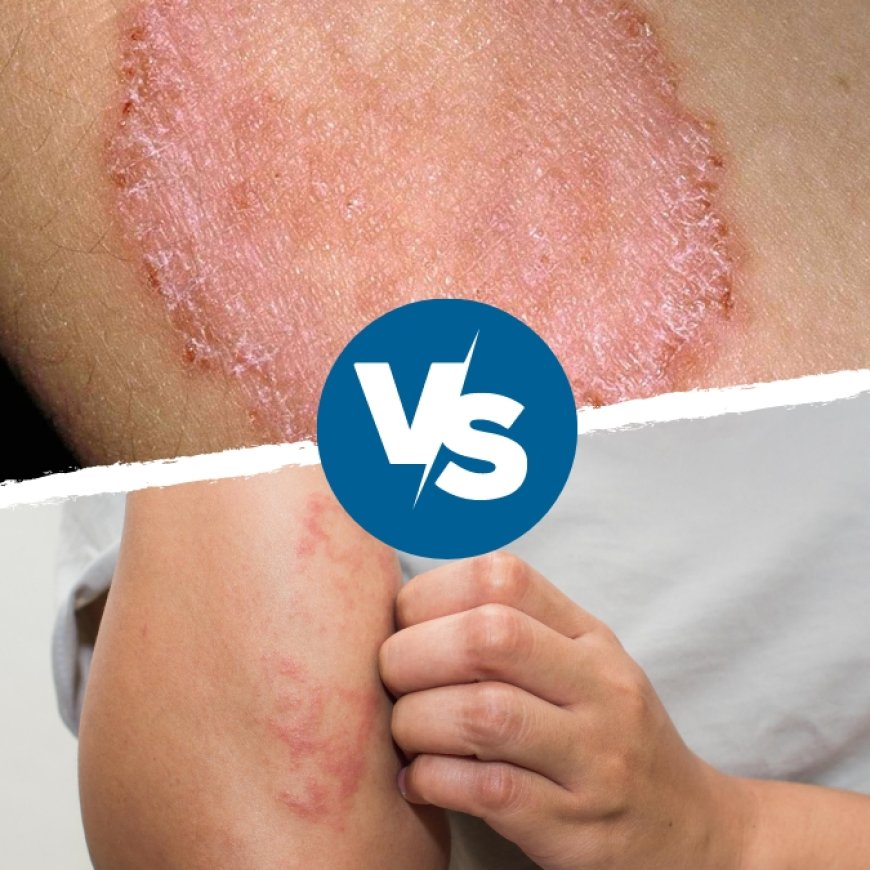Round Patches on Skin - Is it Eczema Or Ringworm?
Both conditions cause round patches on the skin, which can confuse some people. However, this guide will make the difference between ringworm and eczema crystal clear.

Both conditions cause round patches on the skin, which can confuse some people. However, this guide will make the difference between ringworm and eczema crystal clear.
They share some other common symptoms besides those pesky patches. Both conditions commonly have itching, inflammation, a raised rash, pain, and mild odor. Also, these diseases can spread to other body parts if preventive measures are not followed.
In this article, I have explained each disease and its symptoms to make it easy to diagnose specific round patches.
Eczema
Eczema induces blisters, round patches, redness, inflammation, color change, and itching on the skin.
It is the most common chronic inflammatory skin condition in children under 5. People of any age group can be affected by this disease.
Itching is the most extreme and frequently triggering symptom that ruins sleep. That’s why doctors recommend itch-relieving medication alongside the actual treatment of eczema to let the body heal during sleep.
The symptoms of eczema can last up to years if not cured early. Also, there is no complete cure for this skin disease. However, various treatments are available to soothe its symptoms as much as possible. A medicated moisturizing cream is good for its treatment.
No one can tell what exactly causes eczema. Doctors say that genetics, environmental factors, triggers, allergens, an existing form of eczema, and skin infection induce eczema.
Now, let’s look at patches. The eczema patches are usually inflamed and abnormal. The affected area will look more like a rash than round patches.
Also, the patch will be completely affected. Let’s say each round patch on the skin is 1 inch big. Then, the skin inside the 1-inch radius will be inflamed, red, or cracked.
However, the patches will be less round or of irregular shape.
Ringworm
It is a fungal skin disease that can spread from person to person. Animals and objects can also carry the mold-like fungus that causes this condition.
Ringworm mostly affects children under 2 to 10, and it rarely affects adults. It induces ring-shaped patches, redness, inflammation, pain, and mild odor on the skin.
The affected area may look dry or cracked. If you see those symptoms in you or your child, you should seek treatment for ringworm.
This condition is less dangerous than eczema. However, eczema cannot spread from person to person.
The skin inside each ring-shaped patch will look normal, and the surrounding area will have a raised and scaly border. The skin will be cracked or dry.
It itches and causes pain similar to eczema, which can disturb sleep. Antifungal creams are used to treat this condition.
Usually, mild symptoms do not need treatment. The signs will fade out within three weeks. For severe symptoms, you must seek treatment to avoid complications.
The treatment may take a few weeks to remove ringworm symptoms fully. The skin will go back to normal after successful treatment.
Can eczema be mistaken for ringworm?
Eczema has many types, one of which is nummular. This condition causes coin-shaped patches on the skin and is often mistaken for ringworm. Atopic Dermatitis, the most common form of eczema, may cause round patches, but it usually does not. If you see circular patches on the skin but they are not ringworms, you are probably dealing with nummular eczema.
How do we differentiate both?
With the help of provided information about each disease, you should be able to differentiate both. The ringworm patches are ring-shaped with a raised border and normal skin inside. On the contrary, eczema or nummular eczema patches are round or irregular and less inflamed and scaly than ringworm.
In eczema, the patch will be fully infected, unlike clear skin inside the ringworm patch. This is how you can easily diagnose both conditions.
Conclusions
Both skin conditions are different and have a distinct appearance. The patches of ringworm are more raised and scaly than those of eczema. Ringworm has a raised border, and the skin inside looks clean. Antifungal products are used to treat its symptoms. Eczema needs different treatments, and no one can guarantee a complete cure. I hope this guide helped you greatly differentiate ringworm patches from eczema.












